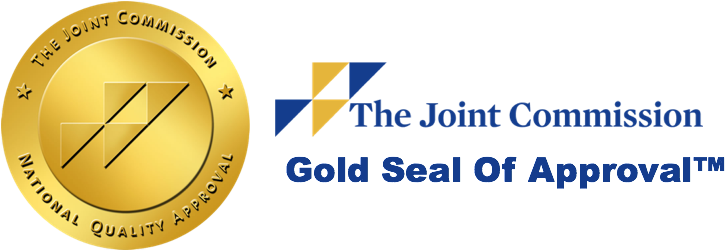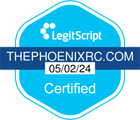Tips for Managing Adult ADHD
Everyday tasks like paying bills on time, managing a career, meeting family obligations, and more can often feel daunting for adults dealing with ADHD (attention deficit hyperactivity disorder). Additionally, ADHD symptoms can often lead to impulsive behavior, which can also amplify problems at work, with family, and with managing finances.
Feeling overwhelmed while managing ADHD on top of everyday life stressors is normal. Over 11 million adults (4% of adults in the U.S.) are diagnosed with ADHD and have to face these struggles head-on. Luckily, medication and therapy are available, and proven helpful, for adults struggling with ADHD.
How to Deal With Adult ADHD
ADHD can be diagnosed as a child and carried into adulthood, or first diagnosed as an adult. While symptoms of ADHD for a child vs an adult can look different, the defining characteristics of inattention, impulsivity, disorganization, restlessness, overactivity, lack of focus, and behavioral control difficulty are still there.
Receiving a medical diagnosis and treatment is essential for managing symptoms of adult ADHD. If left untreated, symptoms of ADHD can get significantly worse and can lead to other mental health problems or even substance abuse. In addition to medical treatment, there are also many tips for managing ADHD that can help individuals manage day-to-day tasks. Below, we’ve highlighted some tips that we have found to be the most effective for managing adult ADHD.
Adult ADHD Tips
1. Stay Organized
Some of the most common traits in adults with ADHD are inattention and distractability. These symptoms can lead to indecisiveness, procrastination, losing important items, forgetting deadlines, and much more.
Staying organized is one of the best ways to help individuals with ADHD avoid downfalls that come from inattention and distractibility. To help, many individuals find organizational websites and apps such as Trello or Monday to help with remembering deadlines and staying on task. Keeping an updated calendar with important meetings, family obligations and deadlines are also effective ways for individuals to stay organized and on top of things. Additionally, adults with ADHD also find that organizing their home and having a specific place to put their phone, wallet or keys helps them avoid losing important items and stay organized and decluttered.
2. Develop Structure
Having structure can help individuals who suffer from ADHD overcome impulsivity and manage their tasks while suffering from inattention and lack of focus. Developing structure looks different depending on the person and what areas of their life are most affected by their ADHD. For many, having a specific structure to their day where they wake up at the same time, exercise at the same time, cook meals and clean at the same time, and go to bed at the same time helps them manage their symptoms overall. Other structural tasks can include shopping on the same day each week, managing bills on the same day each week, doing laundry on the same week, etc. These daily structural tasks help individuals remember to take care of themselves and accomplish regular chores that can often be forgotten by adults who are struggling with ADHD.
3. Focus on Time Management
Time management issues are common symptoms of adult ADHD. Frequently losing track of time, missing deadlines, procrastinating, underestimating how much time tasks will take, are all common symptoms.
In managing adult ADHD, one must acquire time management skills. There are various methods for learning time management such as Pomodoro which allows for specific focus time and regular breaks that individuals find incredibly helpful. Try experimenting and see which one suits you the most.
4. Plan Ahead
Taking on a task at the beginning is a hard leap. Adults with ADHD who are impulsive may accept too many projects at work or commit to too many social events. But a busy schedule often makes individuals with ADHD feel overworked and exhausted, which often leads to procrastination and lower quality of work.
Before starting something new, make sure it fits within your calendar and the lists you’ve made. Be sure to recognize your strengths and weaknesses, and take note of the amount of time a certain task normally takes you. If you feel it would be difficult to accomplish a task on time or meet a social requirement around your busy schedule, remember to set boundaries and communicate your needs.
5. Reduce Stress
Stress is the emotional and physical response to what an individual perceives to be challenging events. Individuals with ADHD may experience stress that is amplified, due to emotional regulation issues and unpleasant responses they have had in comparable circumstances in the past. Together, these factors can potentially exacerbate symptoms, which would heighten the level of stress already present.
Many of the above-mentioned tips can help individuals with ADHD manage their stress. However, individuals often forget to talk to others for support and upliftment and to seek positive appraisal. Adults who struggle with ADHD can feel overwhelmed and confused as to why they can’t seem to manage everything they’re supposed to. These feelings can lead to disappointment and additional stress. Having others understand your situation and provide praise and encouragement can significantly alleviate the overwhelming emotions that you are feeling.
Manage Adult ADHD With Help From The Phoenix
Adult ADHD tips can help significantly with reducing symptoms of ADHD and managing tasks while dealing with the disorder. However, the best help one can receive for ADHD is through professional therapy and medication. If you or a loved one may be experiencing symptoms of adult ADHD and are looking for a professional diagnosis, The Phoenix can help you understand what you are experiencing, and help provide the most effective treatment. Additionally, if you have sought medication and therapy for ADHD before, but your symptoms seem to be getting worse or are unmanageable, it could be time to revisit your medical care.







